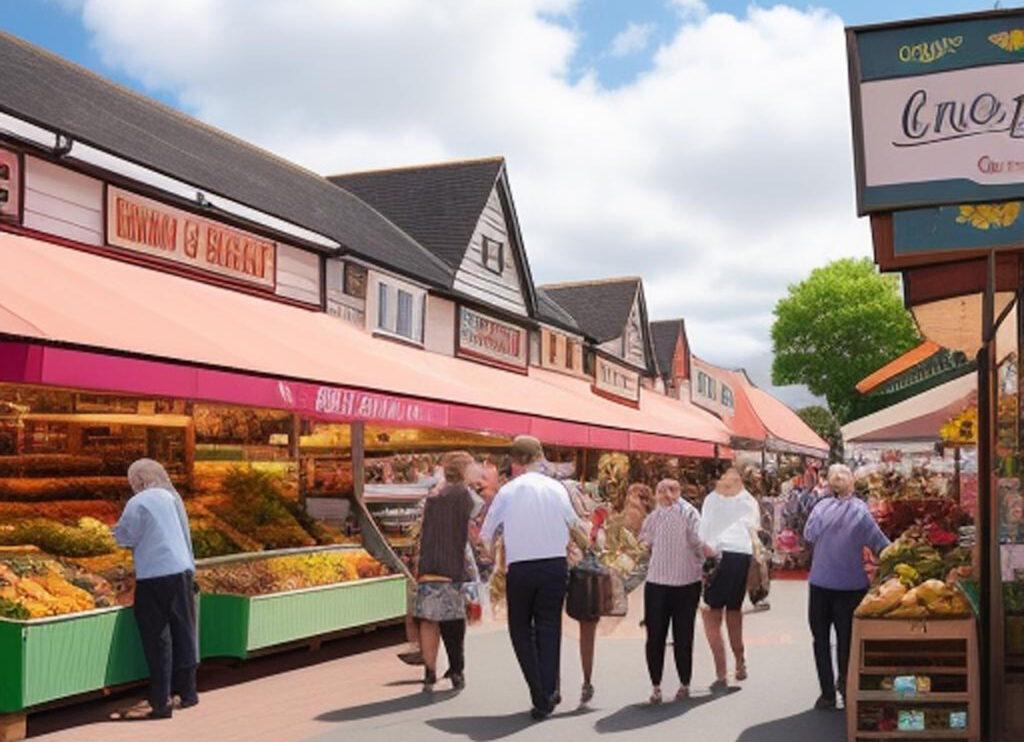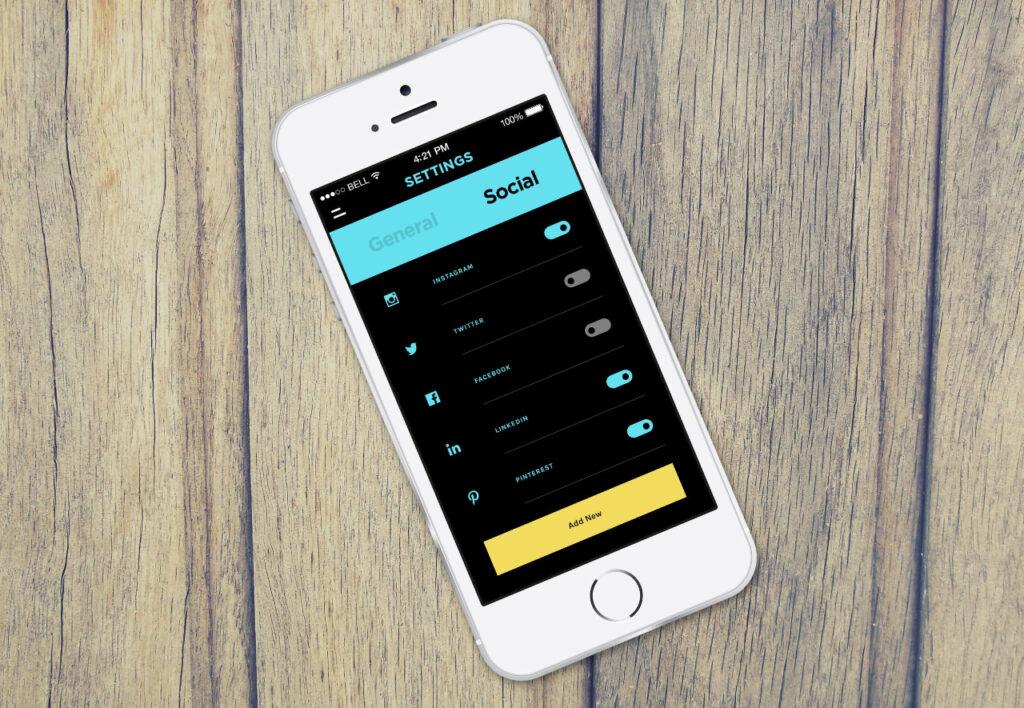In this ultimate local business marketing guide, we’ll explore various tips and tactics specifically tailored for boosting your marketing efforts. Effective marketing plays a pivotal role in the success of any local business. With the right strategies and techniques, you can enhance your visibility, attract more customers, and ultimately drive growth. From harnessing the power of digital platforms to leveraging community engagement, you’ll discover actionable steps to elevate your brand’s presence and reach within your local market.

Local Business Marketing Guide 1 – Define Your Target Audience:
Defining your target market is the most important step. This is why we have included this first in the local business marketing guide.
Understanding your target audience is the cornerstone of any successful marketing campaign. By identifying the demographics, preferences, and needs of your local customers, you can tailor your messaging and offerings to resonate with them. Conduct thorough market research, analyse customer data, and create detailed buyer personas to develop a clear understanding of whom you’re trying to reach.
Local Business Marketing Guide 2 – Optimise Your Online Presence:
In today’s digital age, having a strong online presence is essential for local businesses. Ensure that your business website is user-friendly, visually appealing, and optimised for search engines. Incorporate local keywords throughout your website, regularly update your business information, and include customer testimonials to build trust and credibility.
Local Business Marketing Guide 3 – Claim and Optimise Your Local Listings:
Claiming your business on popular search engines like Google, Bing, and Yahoo, as well as online directories such as Yelp, TripAdvisor, and Yellow Pages, can significantly boost your visibility. Optimise your listings by providing accurate contact information, business hours, and high-quality images. Encourage customers to leave reviews, as positive ratings can greatly enhance your reputation and attract more customers.
Local Business Marketing Guide 4 – Leverage Social Media:
Engaging with your local audience on social media platforms like Facebook, Instagram, and Twitter can help you build brand awareness and foster customer relationships. Share valuable content, promotions, and behind-the-scenes glimpses of your business. Respond to customer comments and inquiries promptly and use targeted advertising to reach potential customers in your area.

Local Business Marketing Guide 5 – Implement Local SEO Strategies:
Search engine optimisation (SEO) is an important part of any local business marketing guide. SEO aims to enhance your visibility in local search results. To achieve this, it is essential to incorporate location-specific keywords throughout your website’s content, create landing pages that cater to specific locations, and ensure that your website is mobile-friendly. Additionally, acquiring backlinks from local businesses and organisations can significantly boost your local SEO efforts.
Creating location-based landing pages is another effective technique for local SEO. These pages should be dedicated to specific locations or regions that your business serves. They can include information about the services or products offered in that area, testimonials from local customers, and any other relevant content that highlights your business’s local presence. This approach helps search engines understand the geographical focus of your website and improves its visibility in local searches.
Local Business Marketing Guide 6 – Collaborate with Influencers:
No local business marketing guide would be complete without mentioning leveraging others to help with your marketing efforts. Influencers who have a large following fall into place as the way to boost your local reach.
To identify local influencers, bloggers, or vloggers in your area, you can follow these steps:
Research Social Media Platforms: Check popular social media platforms like Instagram, YouTube, and TikTok for influential content creators based in your area. Use location-based hashtags or search for specific keywords related to your industry and location.
Explore Local Blogging Networks: Look for local blogging networks or directories that feature bloggers from your area. These networks often categorise bloggers by location and niche, making it easier to find relevant influencers.
Utilise Influencer Marketing Platforms: Use influencer marketing platforms such as Upfluence, BuzzSumo, or NinjaOutreach. These platforms provide databases of influencers based on location, niche, and follower count, allowing you to filter and connect with influencers who match your target audience.
Engage with Local Events and Meetups: Attend local events, conferences, and meetups related to your industry. Network with attendees, speakers, and participants who might have a significant following on social media. Building relationships with local influencers in person can be valuable for future collaborations.
Search Local Hashtags: Search for location-specific hashtags on social media platforms to discover influencers who are actively engaging with their local community. This could include hashtags related to your city or region, local events, or popular landmarks.
Analyse Engagement and Authenticity: When assessing potential influencers, look beyond follower count and consider their engagement rates, content quality, and authenticity. Authenticity is crucial for successful partnerships as it helps establish trust with their audience.
Reach out and Offer Collaboration: Once you’ve identified potential influencers, reach out to them with a personalised message expressing your interest in collaboration. Offer specific partnership ideas such as sponsored content, guest blogging, or product reviews, tailored to their content style and audience.
Remember, it’s essential to establish a mutually beneficial partnership where both parties can benefit.

Local Business Marketing Guide 7 – Host Local Events:
Organising or sponsoring events that align with your business and appeal to your target audience is a highly effective strategy to enhance brand visibility and engage with your local community. Workshops, seminars, or charity fundraisers provide valuable opportunities to showcase your expertise, establish connections with customers, and generate positive word-of-mouth.
Hosting Workshops and Seminars:
Workshops and seminars are another great way to help boost your local reach, which is why we have included this in the local business marketing guide.
Conducting workshops and seminars is an excellent way to share your industry knowledge and establish your brand as an authority in your field. Choose topics that are relevant to your target audience’s interests or address common challenges they face. By providing valuable insights and practical advice, you can demonstrate your expertise and build trust with potential customers. Engage participants by encouraging questions and interactive discussions, ensuring they leave with a positive impression of your brand.
Sponsoring Charity Fundraisers:
Supporting local charities and community initiatives through sponsorship not only allows you to contribute to a good cause but also creates positive brand associations. Identify causes that resonate with your target audience and align with your brand values. By sponsoring charity fundraisers or volunteering for community projects, you can showcase your commitment to making a difference while connecting with potential customers who share your philanthropic interests. Such events often generate positive media coverage, increasing your brand’s visibility and reputation.
Maximising Brand Exposure:
To maximise your brand exposure during events, ensure your company’s branding is prominently displayed, including banners, signage, and branded merchandise. Consider offering promotional items or discounts to attendees, encouraging them to engage further with your brand. Leverage social media platforms to share event updates, photos, and live streams, inviting your online audience to participate virtually. Engaging with event attendees and fostering personal connections will help strengthen relationships and encourage attendees to share their positive experiences with others.
Follow-up and Continued Engagement:
After the event, follow up with attendees through email or social media, expressing gratitude for their participation. Share event highlights, key takeaways, and any resources or materials discussed during the event. This demonstrates your commitment to providing ongoing value to your audience. Encourage attendees to join your mailing list, follow your social media channels, or visit your website for further engagement. Consider hosting future events or webinars to maintain momentum and continue nurturing relationships with your target audience.

FAQs (Frequently Asked Questions):
How long does it take to see results from local marketing efforts?
The timeline for seeing results from your local marketing efforts can vary depending on various factors such as industry competitiveness and the effectiveness of your strategies. While some tactics may yield immediate results, others, like improving local SEO rankings, may take several months to show significant impact. It’s important to remain consistent, monitor your progress, make necessary adjustments, and maintain a long-term perspective for sustained success.
Should I focus on online marketing or offline marketing for a local business?
Both online and offline marketing play essential roles in the success of a local business. Online marketing allows you to reach a broader audience, target specific demographics, and leverage the power of social media and search engines. On the other hand, offline marketing, such as community events, local sponsorships, and traditional advertising, helps establish a strong presence within your immediate area. Combining both approaches can maximise your reach and engage customers through multiple channels.
How important are online reviews for my local business?
Online reviews hold significant importance for local businesses. Potential customers often rely on reviews to assess the reputation and credibility of a business before making a purchase. Positive reviews not only build trust with potential customers but also improve your search engine rankings. Encourage satisfied customers to leave reviews on platforms like Google, Yelp, or industry-specific websites. Respond to reviews, both positive and negative, to demonstrate your commitment to customer satisfaction.
What metrics should I track to measure the success of my local marketing campaigns?
Tracking key metrics is crucial to evaluating the success of your local marketing campaigns. Some important metrics to monitor include website traffic, conversion rates, social media engagement (likes, comments, shares), click-through rates on online ads, online reviews and ratings, and customer feedback. By using analytics tools like Google Analytics or social media insights, you can gain valuable insights into the effectiveness of your marketing efforts. Analyse the data regularly, identify trends and patterns, and make informed decisions to optimise your strategies for better results.

Conclusion:
In this ultimate local business marketing guide, we have explored various strategies and tactics to boost your marketing efforts. By defining your target audience, optimising your online presence, leveraging social media, implementing local SEO strategies, collaborating with influencers, hosting local events, and engaging with your local community, you can significantly enhance your visibility and attract more customers within your local market.
Remember to address the frequently asked questions and adapt these strategies to fit your specific business needs. By consistently investing in marketing and tracking key metrics, you’ll position your business as a prominent player within your local market, attract new customers, and drive sustainable growth. We hope this local business marketing guide has been helpful and wish success in the future.



